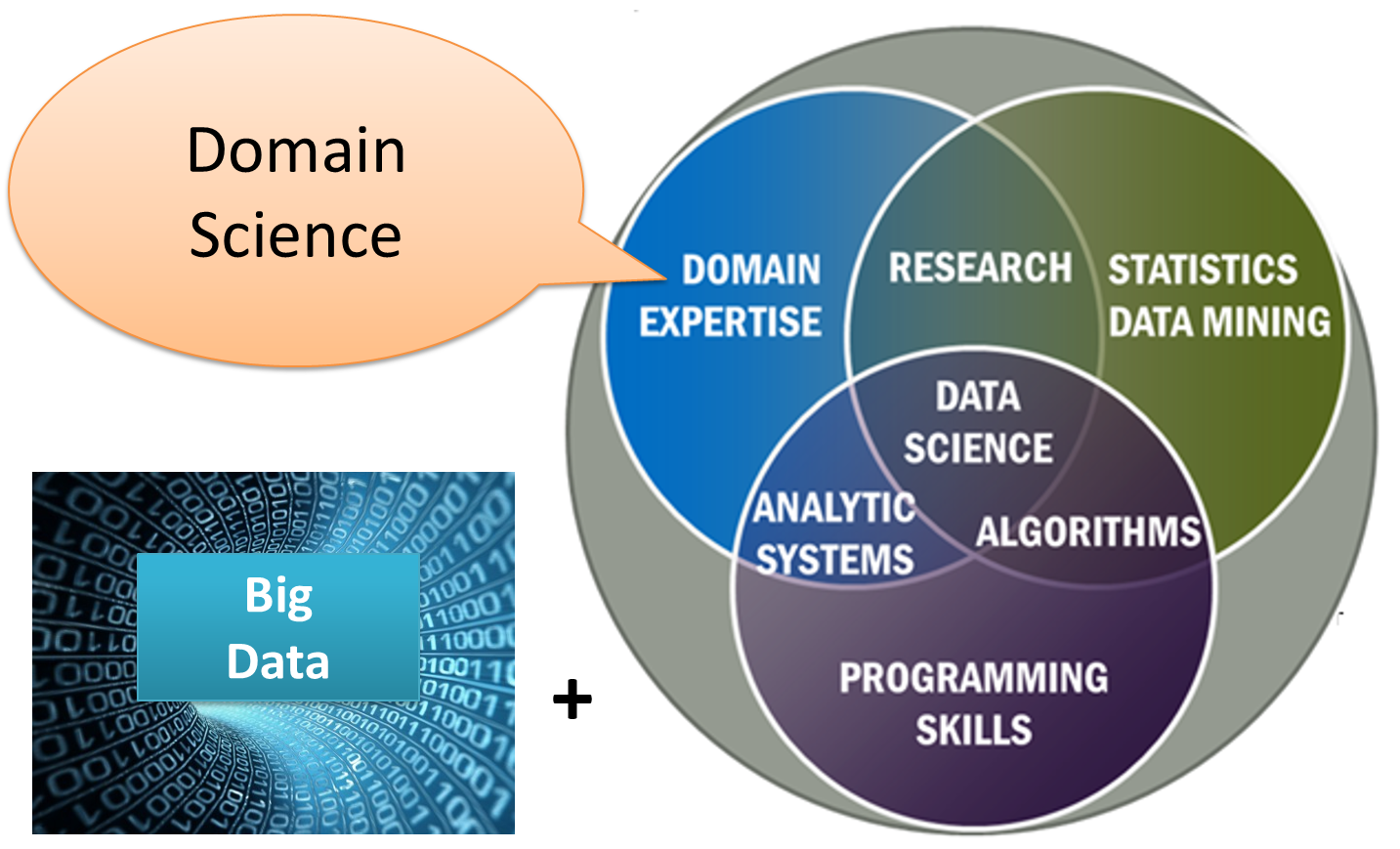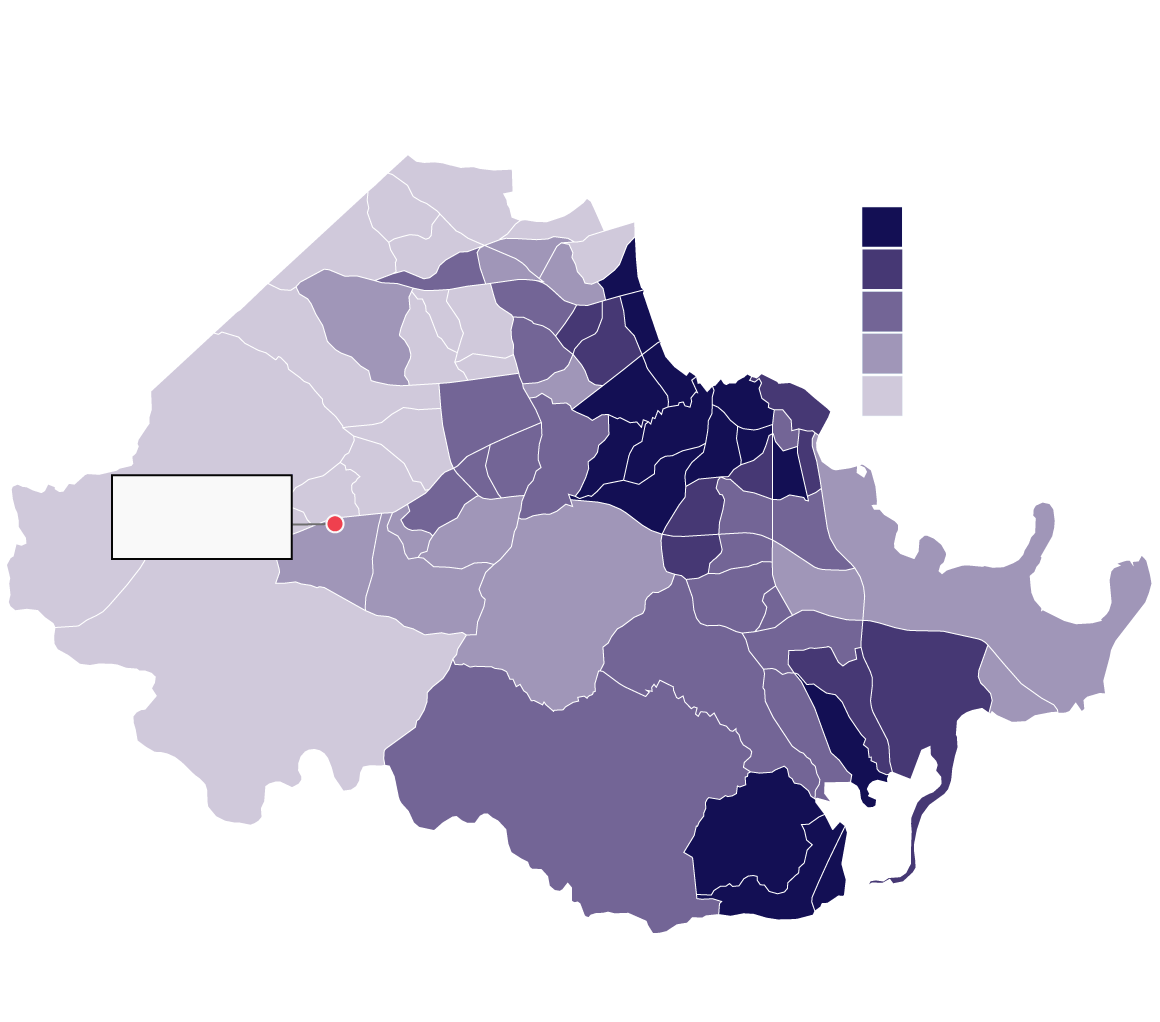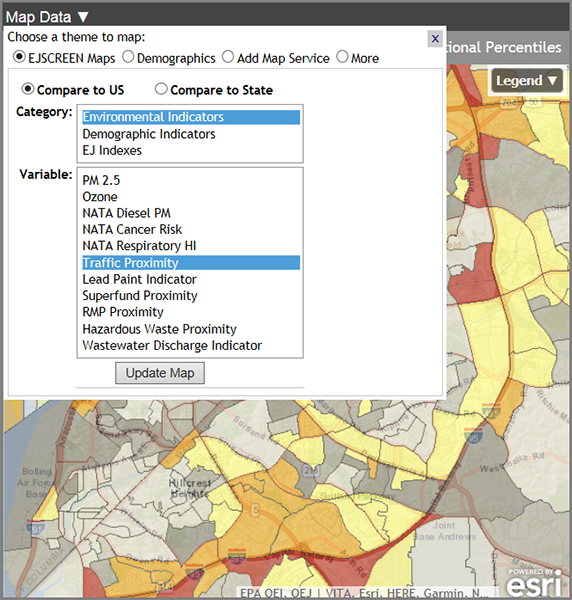Day One: Introductions
SDS 192: Introduction to Data Science
Lindsay Poirier
Statistical & Data Sciences, Smith College
Spring 2022
What is data science?: Common view
- interdisciplinary field combining computer science, mathematics/statistics, and domain expertise to extract meaningful information from unstructured data points
 Hckum, CC BY-SA 4.0 https://creativecommons.org/licenses/by-sa/4.0, via Wikimedia Commons
Hckum, CC BY-SA 4.0 https://creativecommons.org/licenses/by-sa/4.0, via Wikimedia Commons
What is data science?: My view
- interdisciplinary field combining computer science, mathematics/statistics, and domain expertise to extract meaningful information from unstructured data points
- also involves art, design, hermeneutics, communication, and ability to grapple with ethical dilemmas
 Hckum, CC BY-SA 4.0 https://creativecommons.org/licenses/by-sa/4.0, via Wikimedia Commons
Hckum, CC BY-SA 4.0 https://creativecommons.org/licenses/by-sa/4.0, via Wikimedia Commons
Case Study 1: ACLU Fights Discriminatory Housing
- American Civil Liberties Union employs data scientists to produce insights regarding discriminatory laws and practices
- Findings are presented in courts, legislatures, and public reports
- In this study, they use public data to show that excluding people with criminal records from housing can be viewed as a violation of the US Fair Housing Act.

Case Study 2: EPA Tracks Environmental Injustice
- Environmental Protection Agency hires data scientists to produce insights regarding environmental health risks
- Findings implicate environmental policies, funding allocations, and legal actions against states and industries
- This tool, visualizes environmental and demographic indicators to highlight communities experiencing environmental injustices.

Case Study 3: Geena Davis Institute Studies Gender Biases in Films
- Geena Davis Institute collaborated with University of Southern California’s Signal Analysis and Interpretation Laboratory (SAIL)
- Developed a machine learning tool to measure representation of diverse groups in films by studying screen time and speaking

Topics covered in this course
- data visualization
- data wrangling
- programming with data
- mapping
- data retrieval
- data science infrastructures and workflows
- data science ethics
Who is the professor? Why is an anthropologist teaching data science?
- Please call me Lindsay (preferred), Professor Poirier, or Dr. Poirier
- Assistant Professor of SDS and cultural anthropologist
- Previously Assistant Professor of Science and Technology Studies at UC Davis
- Lab Manager at BetaNYC
- M.S./Ph.D. in Science and Technology Studies from Rensselaer Polytechnic Institute
- B.S. in Information Technology and Web Science from Rensselaer Polytechnic Institute
- Dancing, crafting, cooking, re-watching the same TV series over and over again.
- I have a very spunky dog Madison.
Exercise
Demonstration: Find the non-STEM major in the class for which students with that major on average drink the most cups of coffee per day. Repeat for STEM majors.
Coding can be intimidating!
- Coding is like learning a new language. When you are first learning it, it all feels completely unfamiliar. I will work to support you in building the vocabulary and syntax to code in R.
- Coding can be frustrating. I regularly lose hours of my day in trying to find bugs in my code. I will work to give you resources and skills to navigate coding frustrations.
- Coding social environments have historically been exclusionary. I will work to reduce barriers to coding in whatever ways I can.
Prepping for this Class
- Navigating Course Website
- Standards Grading
- Perusall
- Slack
For Friday
- Install Slack Desktop and set notifications
- Complete Syllabus Quiz
- Fill out first day of class questionnaire
- Let me know if you will be using a Chromebook, asap
- Bring charged tech to class on Friday
